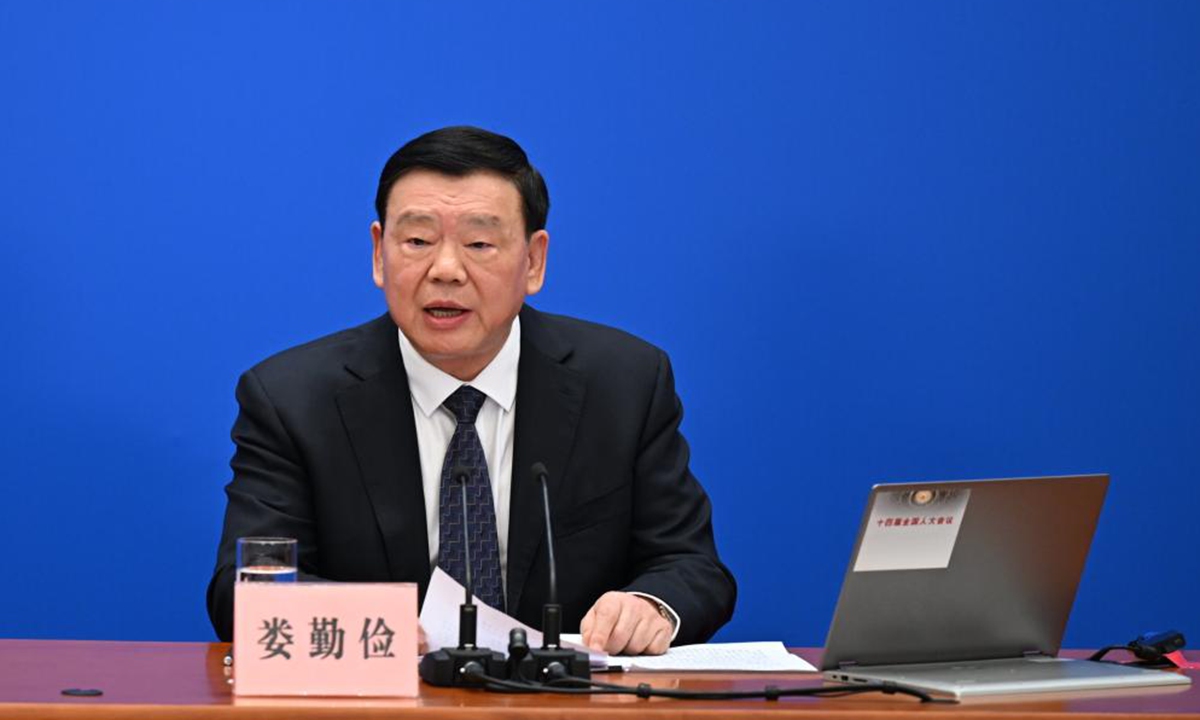Newly revised anti-espionage law enhances certainty and security of foreign investors: NPC spokesperson

Lou Qinjian, spokesperson for the second session of the 14th National People's Congress
The newly revised anti-espionage law does not expand the scope of espionage activities, but rather, it improves the definition of espionage activities, clarifies the boundaries between illegal and legal activities, and enhances the certainty and security of foreign enterprises and individuals investing, working, and living in China, said a spokesperson for the National People's Congress (NPC) session on Monday.
There are concerns that there will be further revisions to related laws this year after China revised its anti-espionage law last year and passed the Guarding State Secrets law.
In response, Lou Qinjian, spokesperson for the second session of the 14th NPC said the law does not target normal activities such as business transactions, scientific research cooperation, and academic exchanges.
We oppose the distortion of the anti-espionage law to smear and undermine the domestic business environment in China, said Lou.
The Standing Committee of the NPC has enacted and amended a number of laws, including those related to foreign affairs, and has included multiple projects related to foreign laws in the current legislative plan, providing legal basis for protecting the legitimate rights and interests of foreign individuals and overseas enterprises in China. It supports the construction of a market-oriented, rule-of-law, internationalized, and first-class business environment, said Lou.
Lou said that China has always adhered to the basic national policy of reform and opening-up, developing foreign relations, promoting friendly exchanges, and welcoming and attracting foreign individuals and overseas organizations to engage in trade, investment, and cooperation in China. China's attitude toward this has never changed and will not change.
He noted that China's doors to the world have always been open and will never be closed. With the doors open, the world can enter China, and China will continue to open to the world. China will continue to promote high-level opening-up on the basis of the rule of law, advance the construction of foreign-related legal system in expanding opening-up, and continuously strengthen the legal foundation of high-level opening-up.
Global Times

